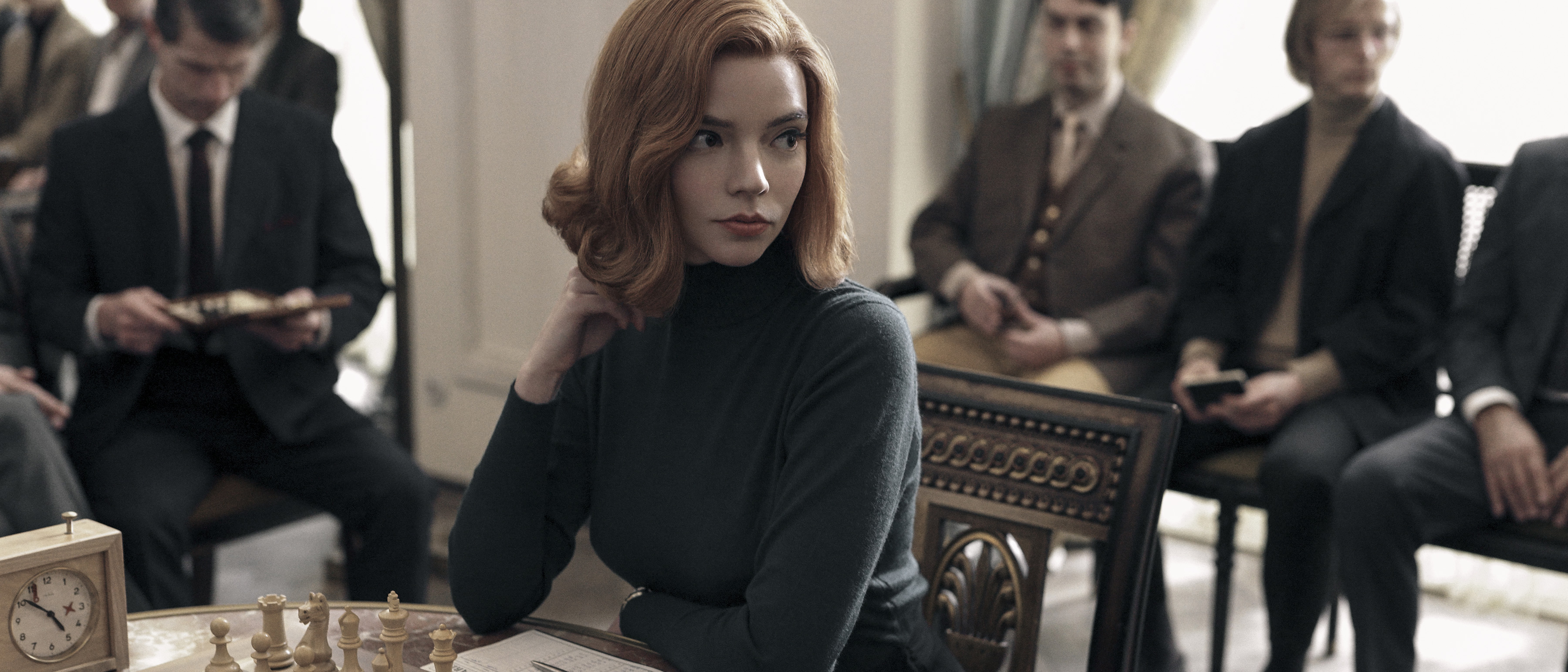What to Watch Verdict
A gripping — and often painful — story meets beautiful cinematography in a series that manages its moves to near-perfection.
Pros
- +
♕ A tortured character brilliantly played by three actresses.
- +
♕ Excellent pacing that keeps you interested even if you don't care about chess.
- +
♕ Strong supporting cast.
Cons
- -
♛ Birth mother's issues could have been explored a little more.
This review contains some spoilers for The Queen's Gambit.
Chess is a simple game to learn. The pieces move in particular ways, and that's that. But mastering the game? That's another matter. It takes time and work, sure. But there also are some with an innate talent — an ability to see the board and the moves in ways the rest of us simply can't. And some of those people are impossibly young.
When we meet Beth Harmon (Anya Taylor-Joy) in The Queen's Gambit, though, it's not in front of a chessboard. First, it's in a bathtub in Paris, late for a match, obviously after a long night out.
We meet her again — this time as a child — on a bridge, with her mother having just been killed in a car wreck that was meant to end both their lives. Beth is taken to an orphanage where the girls live under strict rules, and are medicated on tranquilizers. Beth's one dress she brought with her — bearing her name, so she'd never forget who she is, her mother said — is to be burned. Some girls find new families. Others are lifers.
This is not a happy place.
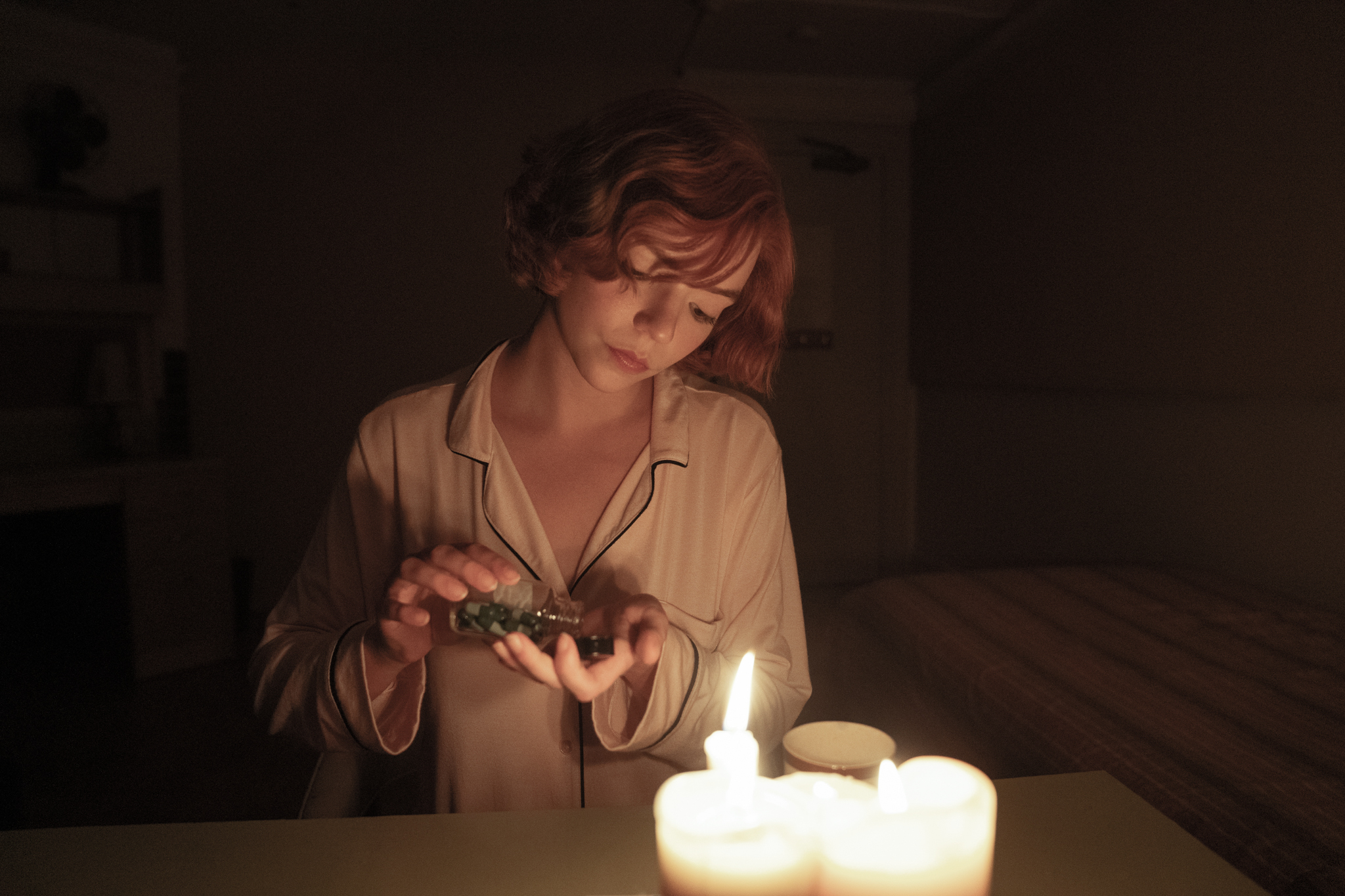
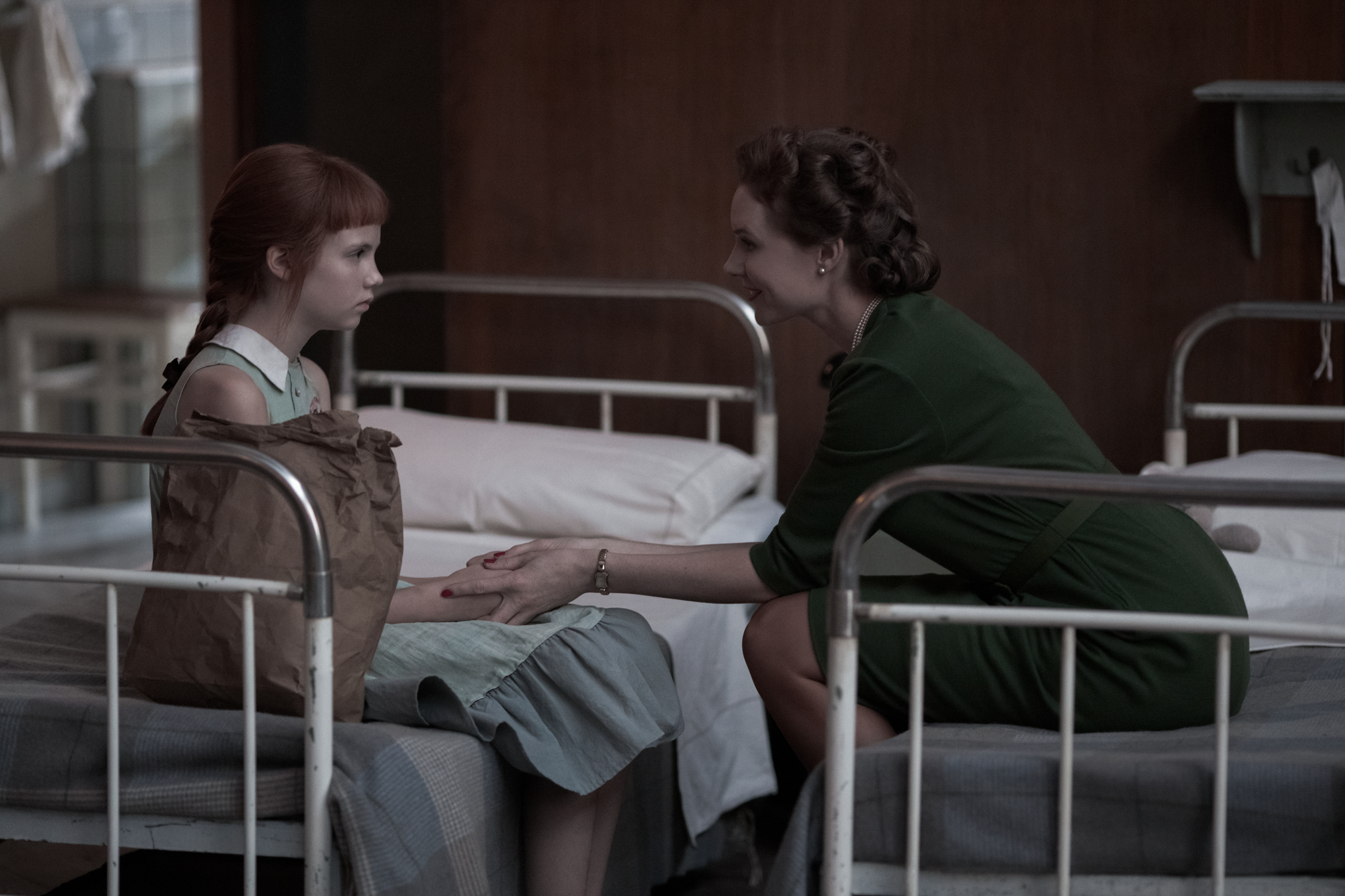
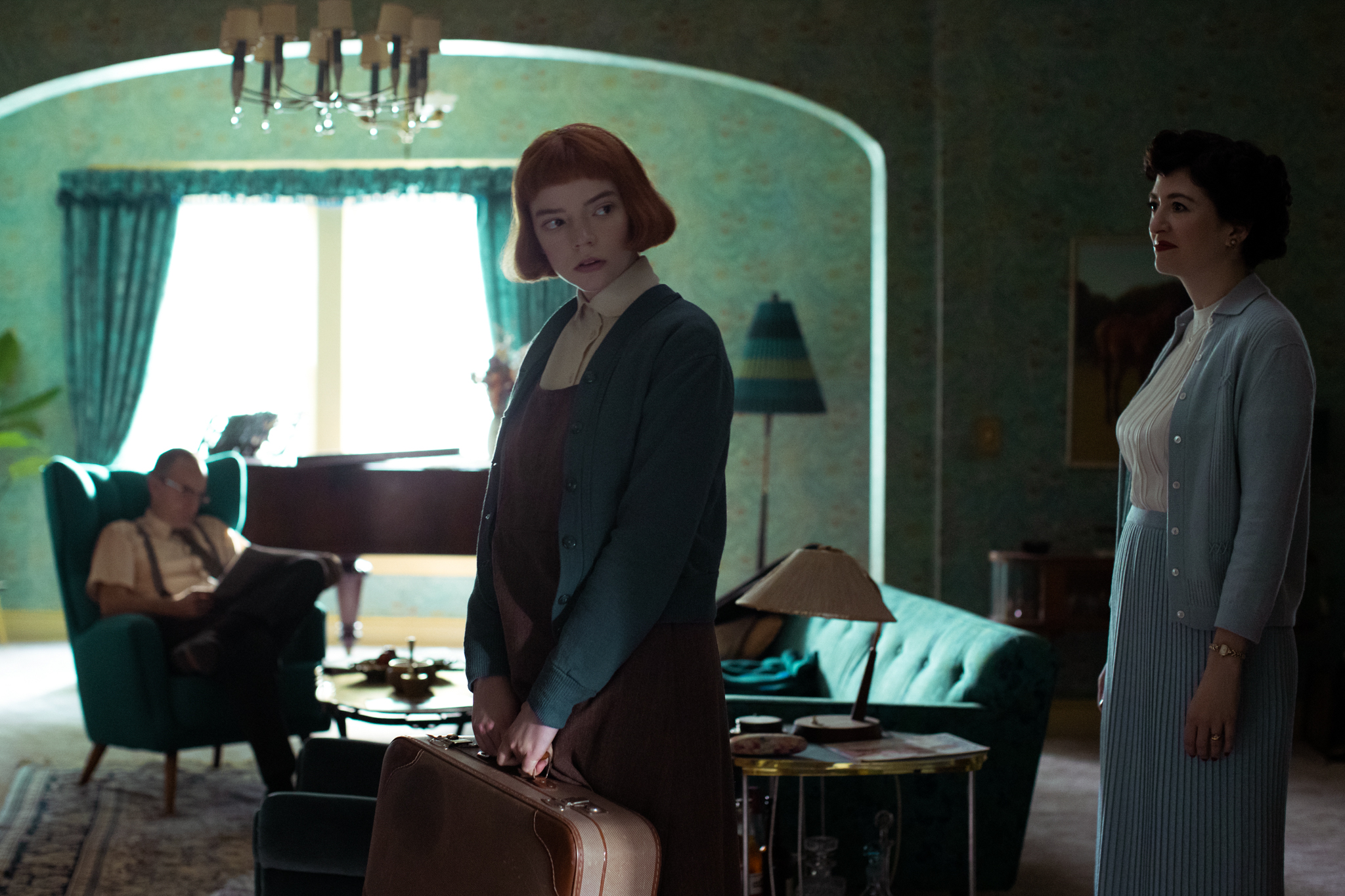
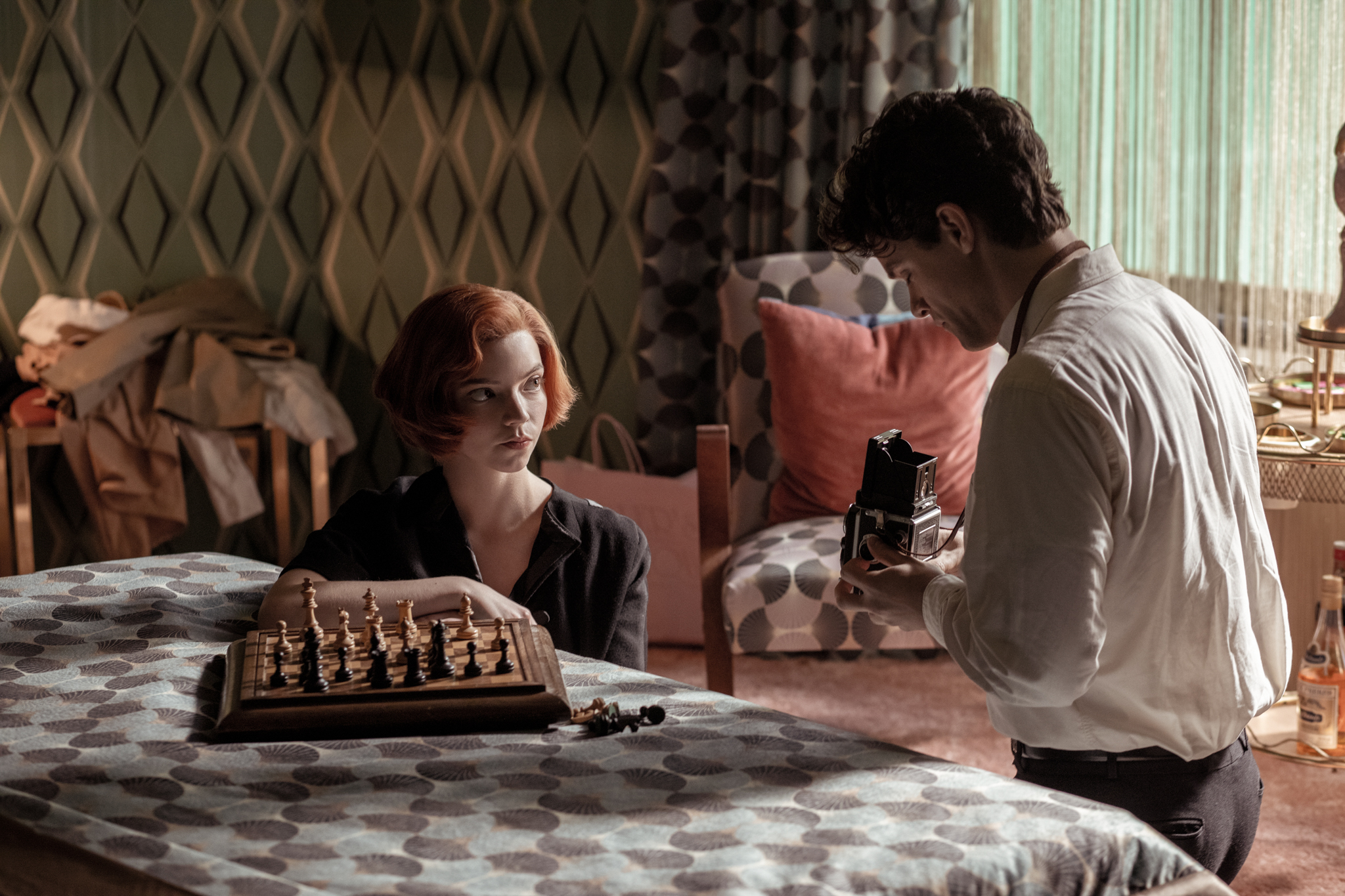
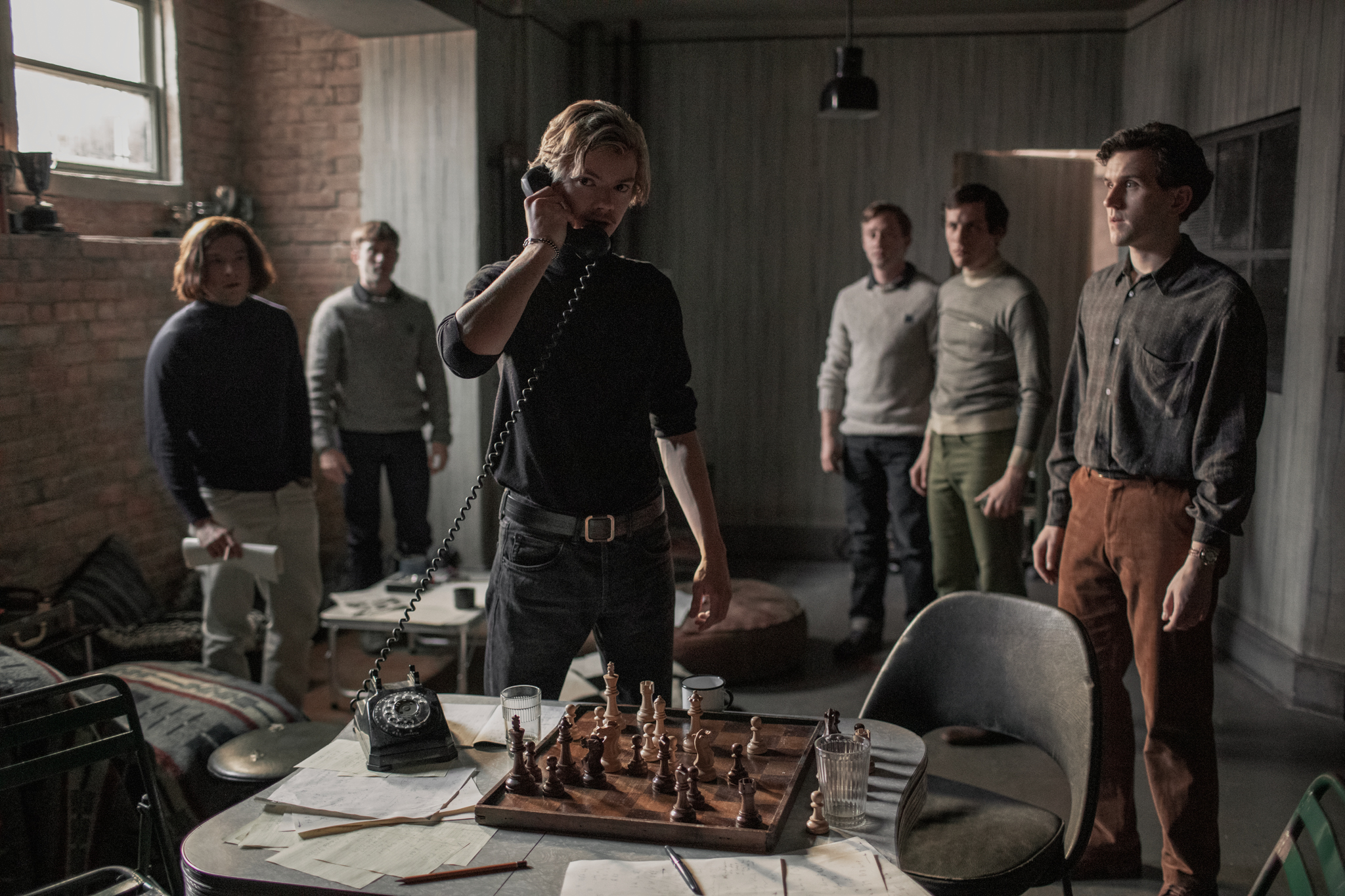
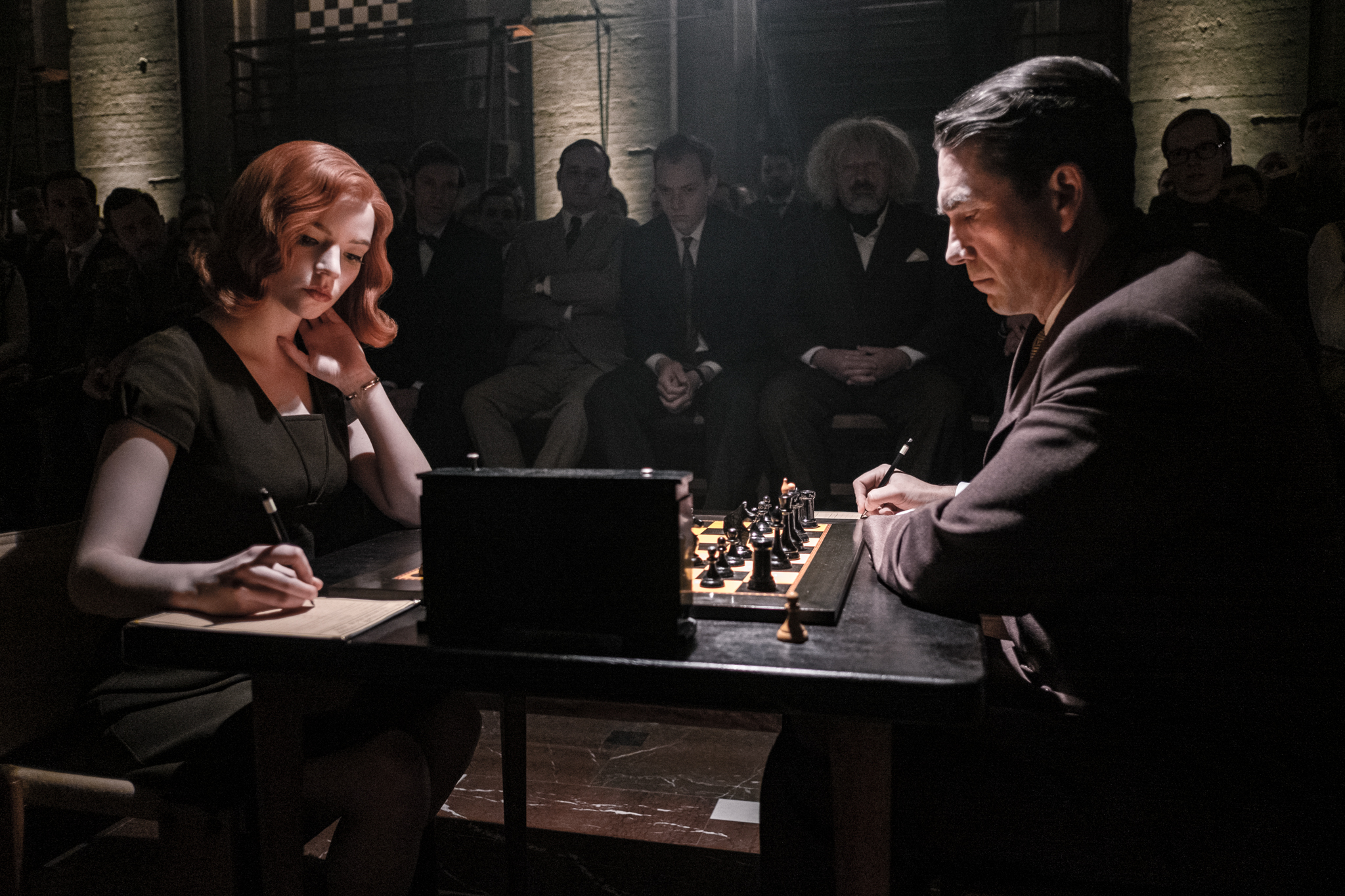
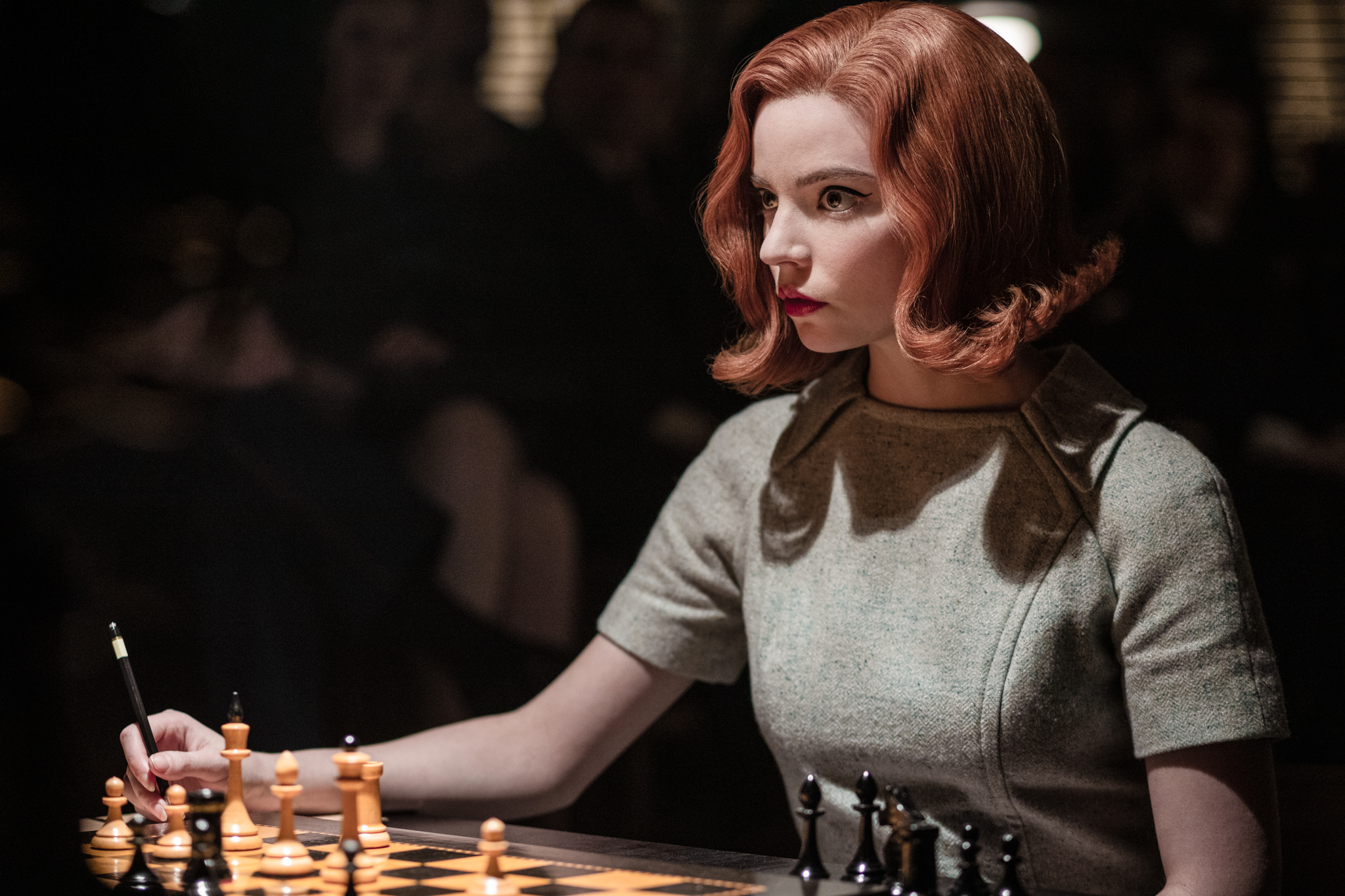
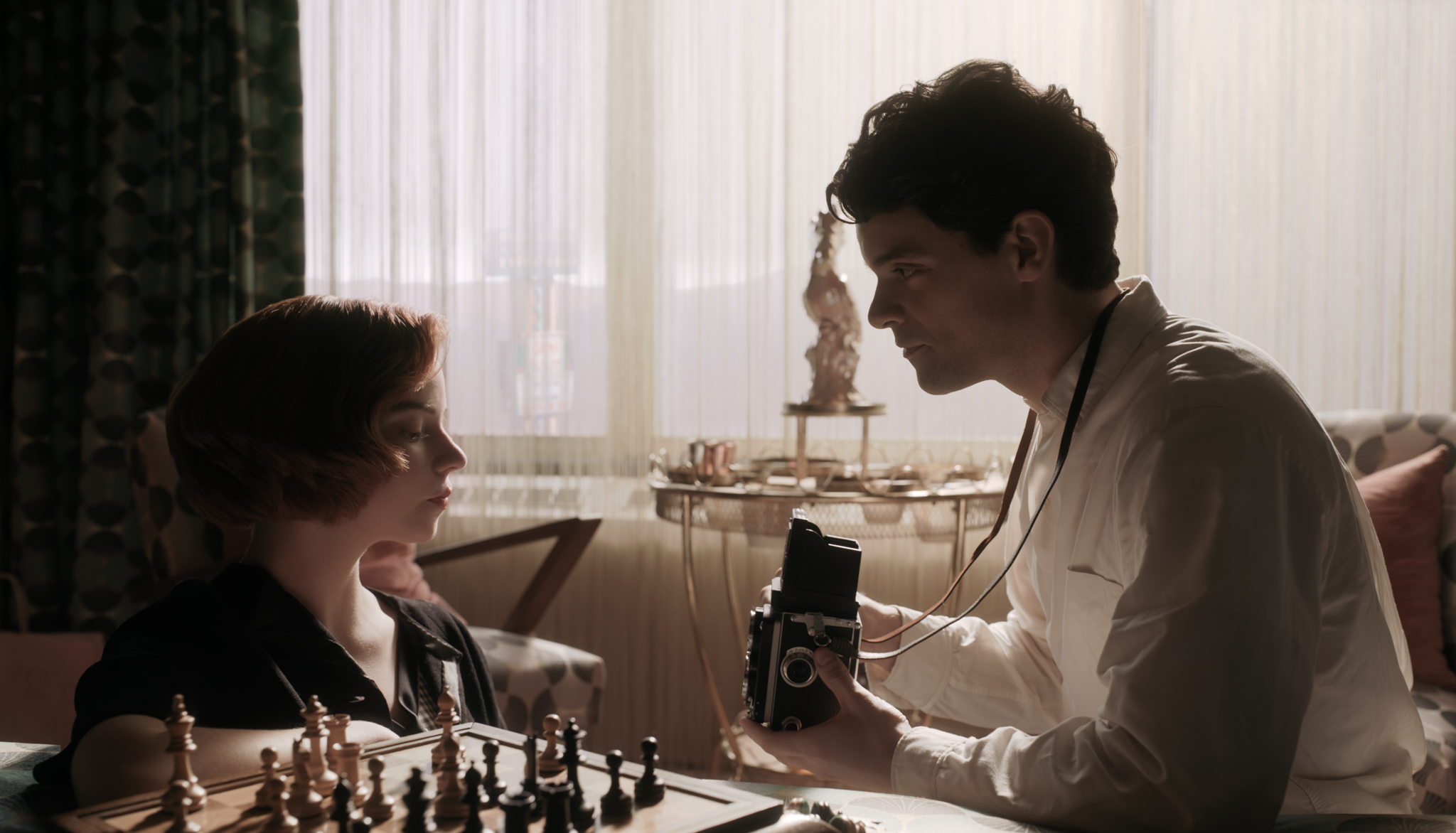
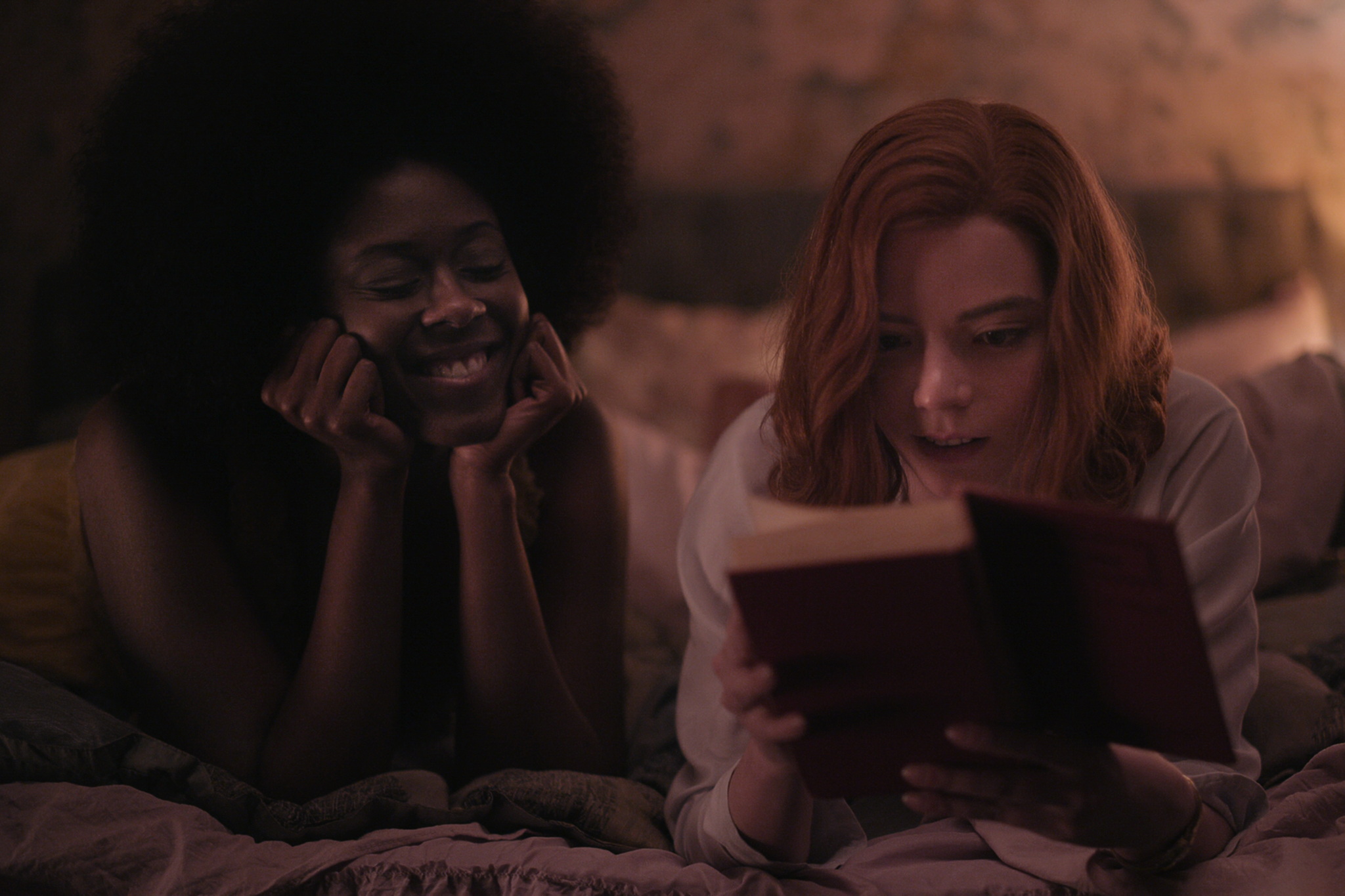
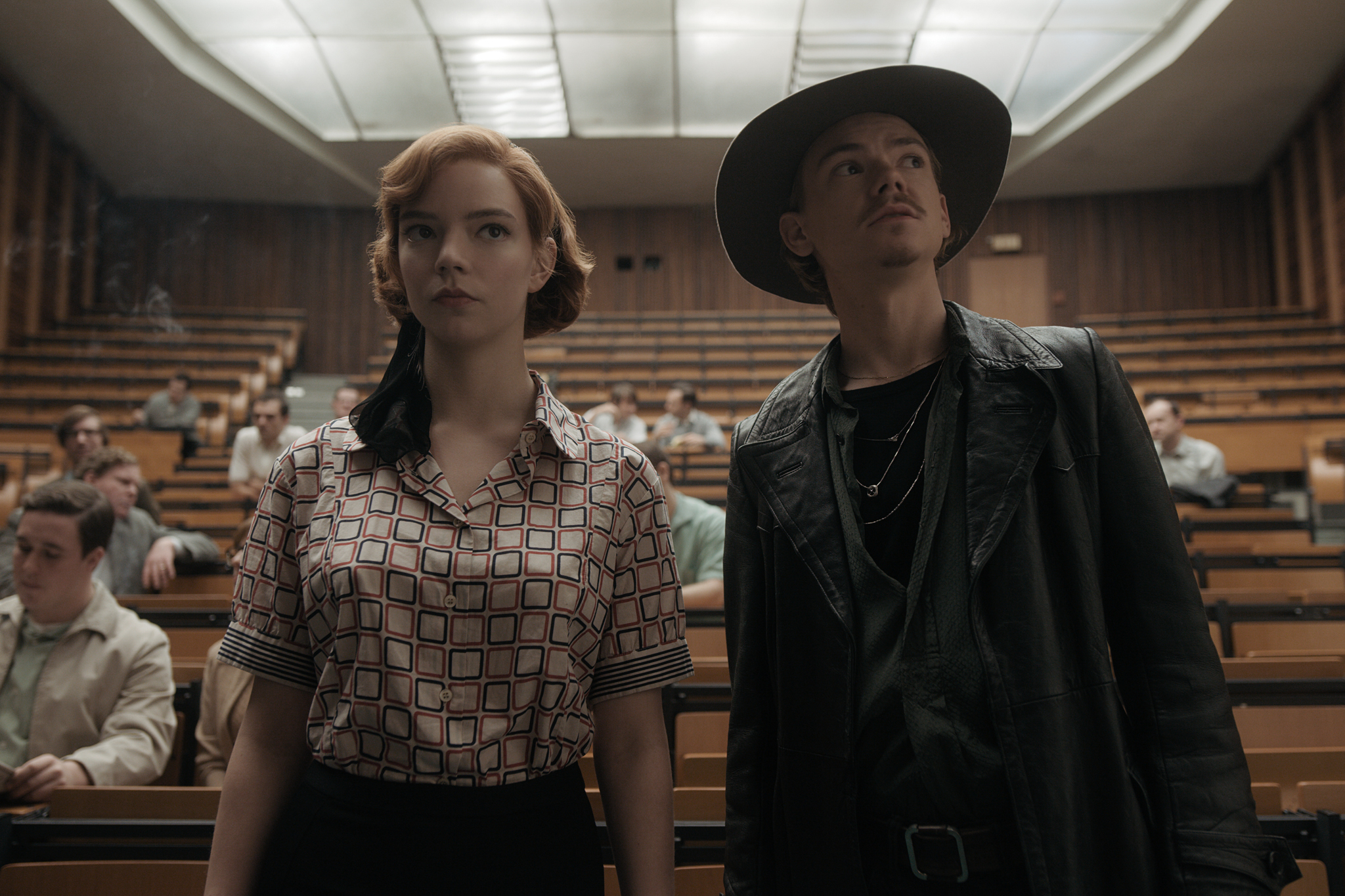
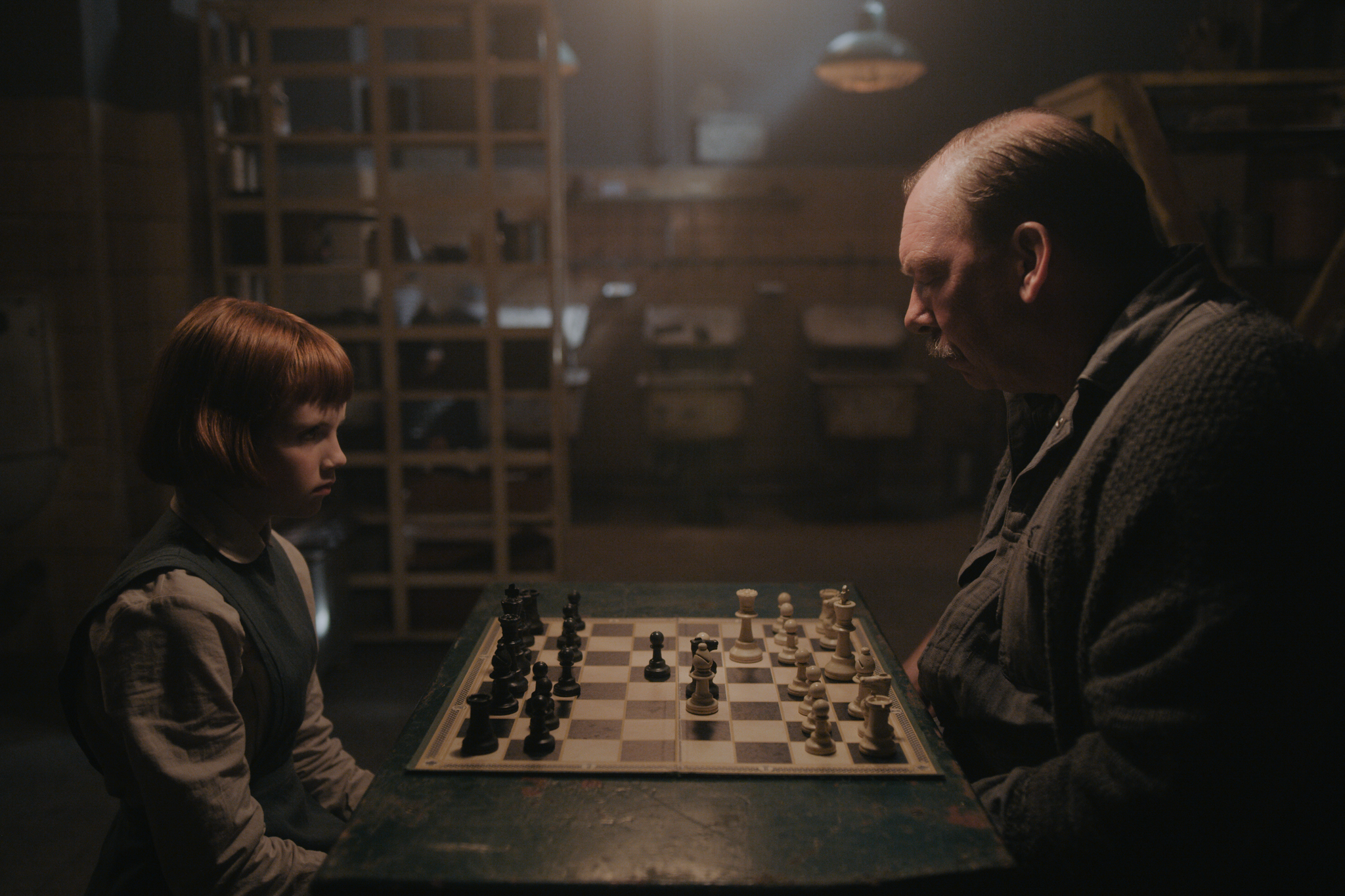
Harmon is brilliantly played over three ages by Annabeth Kelly as the 5-year-old, Isla Johnston around 9, and Anya Taylor-Joy from the teens on up. There's the obvious sadness that comes from your mother having killed herself and having tried to take you with her — Alice Harmon's (Chloe Pirrie) final words to daughter, as relayed to Beth's new orphan friend Joelene (Moses Ingram), were "Close your eyes."
Those three words do a lot of work, but they leave no doubt early in the seven-episode series as to what Alice's intentions were, and what effect they'll have on Beth. The foreshadowing continues when Jolene tells Beth to save the green pills (the tranquilizers) for nighttime and not to dope up during the day. Beth learns that lesson the hard way. Jolene also warns Beth to not get too used to the feeling, which of course she's going to do.
The latest updates, reviews and unmissable series to watch and more!
This is where the series itself starts to resemble a chess game. We can start to see the pieces on the board. And we can start to see some of the moves in advance. Beth is going to get hooked tranquilizers. But we can't see the outcome just yet. It's too early.
Beth herself starts to see pieces and moves, too, after visiting the basement to clean chalkboard erasers and finding the janitor, Mr. Shaibel, playing chess with himself. Beth is intrigued, but Mr. Shaibel refuses to teach her the game. At night, with the help of the drugs, of course, she begins to see the pieces and moves on the ceiling. She visits the orphanage basement as much as possible (for a place with strict rules, nobody seemed to mind how much eraser-cleaning was going on), and eventual Mr. Shaibel relents and begins to teach Beth the game, giving her lessons and books.
Beth is obsessed. It's all she sees, and all she wants to know. She's got the sort of personality whose addictive traits permeate, from the game to the drugs to the whatever else is going to come her way in life. She's a savant, but one with real demons. When the orphanage is forced to stop drugging the girls, Beth begins to go into withdrawal and breaks into the pharmacy closet. She crams a handful of pills into her mouth, and more into her pockets, overdoses and passes out. The problem, of course, chess — Beth has managed to make her way to the local high school chess club while still living at the orphanage — and so the headmistress puts a stop to all that foolishness. It's just not what young girls do in the 1960s.
Beth eventually is adopted. But while the suburban life of Alma Wheatley (Marielle Heller) and Allston Wheatley (Patrick Kennedy) appears idyllic at first — especially when compared to years in an orphanage — the facade quickly falls apart. Alma is a drinker. Allston can barely acknowledge Beth (or his own wife, for that matter), and he's gone more than he's around, sending money on occasion. Beth starts school. But as someone who has grown up without means or any sort of real-world experience — plus the knowledge that her own mother tried to kill her — it's a lonely existence surrounded by children who are at the peak of their potential awfulness.
Chess is the only thing that keeps Beth going. And after she writes Mr. Shaibel and asks for a loan for the entry fee to a local chess tournament — Mrs. Wheatley certainly didn't have the $5 to spare when there's a beer to be had — the chess gets going in earnest. It's a way for Beth to make money and a way to satiate her brain. Well, the chess and the pills and now the booze.
Those are the pieces that The Queen's Gambit puts on the board. Like chess itself, the pieces are simple to understand. Tragic upbringing. Adverse outside influences aplenty. Some positive ones, too, in the form of young men, but the inexperienced Beth has trouble processing those options. And like Beth, we see a lot of the moves ahead of time. We know the addiction is what makes her who she is, and we know what the addiction — both to chess and to substances — will do to her. We know that her friends (and opponents, Thomas Brodie-Sangster — who you'll recognize from Game of Thrones or The Maze Runner or as the voice of Ferb in Phineas and Ferb — has a great role as both) want to help her, the question is whether Beth will let them.
We know that there are a lot of possible moves Beth can make as she begins to beat more and more of the best chess players in the United States, and then in Mexico, and in France and finally in the Soviet Union, while also sinking deeper and deeper within herself.
What we don't know while we're watching (and I won't spoil it here) is the endgame. We don't know if Beth will finally get the victory over the opponent she's wanted. We don't know if the story will end in tragedy, with her king on its side and her life in the balance. Or if she'll pull off the win and fill that empty space. (And would that satiated void simply be replaced by another?)
The Queen's Gambit — based on the Walter Tevis novel — does a lot of work in just seven episodes and it's setting records in the process. It's a standout binge amid a sea of hit-and-miss offerings from Netflix. Scott Frank, who directed all seven episodes and handled the teleplay duties as well, makes the most of that brief time, and shot the series beautifully. The stories themselves move quickly, almost as if the series is on a timer, just like a game of chess. There are few (if any) wasted moments.
And you don't even have to be a chess player to enjoy The Queen's Gambit. You just need to want to see what move Beth makes next.
Phil spent his 20s in the newsroom of the Pensacola (Fla.) News Journal, his 30s on the road for AndroidCentral.com and Mobile Nations and is the Dad part of Modern Dad.
